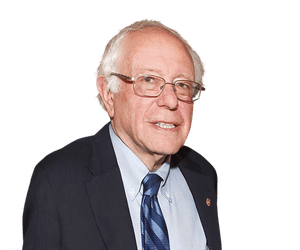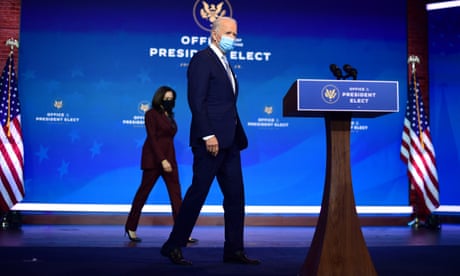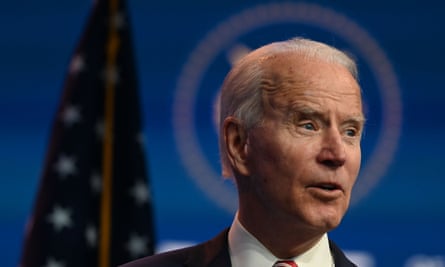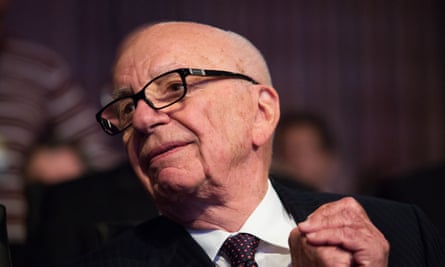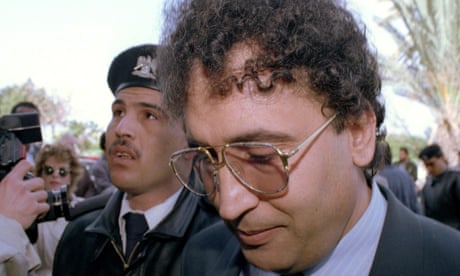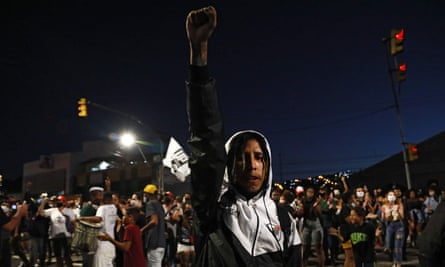Theories abound over mystery metal monolith found in Utah
Structure compared to monolith featured in 2001: A Space Odyssey while John McCracken gallerist says object is not sculptor’s work
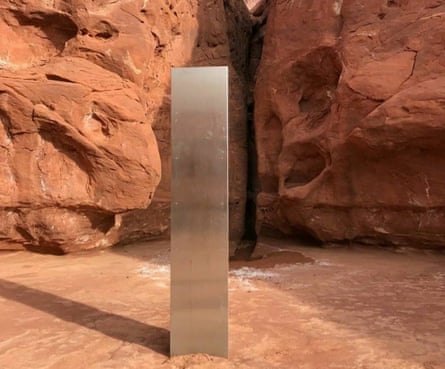
A giant, metal mystery slab has captured the attention of millions, as people speculate over how such a structure came to be in a remote part of southern Utah.
The object was first spotted last week by a helicopter pilot and wildlife officers who were flying above the rugged area to conduct an annual count of bighorn sheep for the state. It immediately drew comparisons to the monolith featured in 2001: A Space Odyssey as well as inviting suggestions it could be the work of extraterrestrials.
The helicopter pilot, Bret Hutchings, had the opportunity to see the big metal slab up close and guessed it was probably the work of an artist and between 10ft and 12ft high (about 3 metres).
“I’m assuming it’s some new wave artist or something or, you know, somebody that was a big 2001: A Space Odyssey fan,” Hutchings told local news station, KSLTV, which first reported on the slab.
The work was compared to those of many minimalist sculptors, including artist John McCracken, who died in 2011. His gallerist, David Zwirner, told the Guardian the mystery object was not one of his works.
“While this is not a work by the late American artist John McCracken, we suspect it is a work by a fellow artist paying homage to McCracken,” a David Zwirner spokesperson said.
One thing that is known is that without authorization, it is illegal to install structures or art on federally managed public lands, according to Utah’s department of public safety (DPS). This is true, “no matter what planet you’re from”, the agency said in a statement.
The agency said it does not plan to reveal is the exact location of the object. “It is in a very remote area and if individuals were to attempt to visit the area, there is a significant possibility they may become stranded and require rescue,” DPS said.
That did not stop Reddit users from identifying its likely whereabouts, as well as discussing theories about the ways the object could have got there and why.
In zoomed in photos of the structure, Reddit users noted there were lines by its base which suggested a rock saw had been used to put it in the ground and that it appeared to be held together with screws, dispelling the theory it could be one large hunk of metal.
The structure also caused controversy in the geography world, which took issue with Utah’s government using the word “monolith” to describe the object.
A monolith is technically a geographic feature made of stone, while this slab appears to be made of metal. Merriam Webster’s dictionary, however, allows for a looser interpretation of monolith as “a massive structure” and it is the word used to describe the structure director Stanley Kubrick made famous in 2001: A Space Odyssey.
So glad the news is finally getting back to normal https://t.co/vKqF5Zaavq
— NICK H (@n1ck_harr1s) November 23, 2020
Weird how these things always end up in places like picturesque and mysterious places like Utah instead of, say, a housing estate in Merthyr Tydfil or the lobby of a modestly priced hotel in Bangalore. https://t.co/HODzFmP8tG
— Ian Hall (@DrIanHall) November 23, 2020
Helicopter pilot finds 'strange' monolith in remote part of Utah
State employee spotted mysterious metal structure amid red rocks while counting bighorn sheep
A mysterious monolith has been discovered in a remote part of Utah, after being spotted by state employees counting sheep from a helicopter.
The structure, estimated at between 10ft and 12ft high (about 3 metres), appeared to be planted in the ground. It was made from some sort of metal, its shine in sharp contrast to the enormous red rocks which surrounded it.
Utah’s highway patrol shared images of both the sheep and the monolith.
The helicopter pilot, Bret Hutchings, told local news channel KSLTV: “That’s been about the strangest thing that I’ve come across out there in all my years of flying.”
Hutchings was flying for the Utah department of public safety, which was helping wildlife resource officers count bighorn sheep in the south of the state.
“One of the biologists is the one who spotted it and we just happened to fly directly over the top of it,” Hutchings said. “He was like, ‘Whoa, whoa, whoa, turn around, turn around!’ And I was like, ‘What?’ And he’s like, ‘There’s this thing back there – we’ve got to go look at it!’”
Andrew Adams(@AndrewAdamsKSL)The @UtahDPS helicopter was assisting the @UtahDWR in counting bighorn sheep in remote southern Utah Wednesday when the crew encountered something entirely 'out of this world'...@KSL5TV #KSLTV #Utah
November 21, 2020
Photojournalist: @Photog_Steve5 pic.twitter.com/f8P0fayDIS
Hutchings said the object looked manmade and appeared to have been firmly planted in the ground, not dropped from the sky.
“I’m assuming it’s some new wave artist or something or, you know, somebody that was a big 2001: A Space Odyssey fan,” Hutchings said.
The monolith and its setting resembled a famous scene from Stanley Kubrick’s 1968 film, in which a group of apes encounter a giant slab.
The somewhat monkey-like behaviour of two crew members, dressed in sci-fi costume-like overalls, who found themselves compelled to climbed onto each other’s shoulders in an apparent effort to see over the top of the rectangular cuboid, only added to the impression.
pourmecoffee(@pourmecoffee)Initiate the protocols and meet at the rendezvous point. It's begun.
November 23, 2020
"Helicopter pilot finds 'strange' monolith in remote part of Utah" https://t.co/QCIVJuz1AJ pic.twitter.com/bcNY5cteOm
Will “Film Noir Name” Perkins(@WilliamHPerkins)
*ape violence intensifies* https://t.co/tWA80mGBbm pic.twitter.com/LJGnKKuQgW
November 23, 2020
“We were kind of joking around that if one of us suddenly disappears, then the rest of us make a run for it,” Hutchings said.
Bighorn sheep live in some of Utah’s most rugged and remote areas and survive in hostile climate conditions. Fearing amateur explorers might get stuck in the wilderness while seeking out the monolith, the flight crew have not revealed its exact location.
Some observers compared the monolith to the plank sculptures by artist John McCracken, who lived in New Mexico and New York until his death in 2011. McCracken’s gallerist, David Zwirner, did not immediately respond to a request for comment.
Artist Liam Sharp summed up the people’s fascination with the discovery in 270 characters or less, putting into the portal the words, “I love this. I imagine it’s an art piece, but what if it isn’t”.
Liam 'Sharpy' Sharp(@LiamRSharp)I love this. I imagine it’s an art piece, but what if it isn’t... :-) Helicopter pilot finds 'strange' monolith in remote part of Utah https://t.co/mNUDaXWnVB
November 23, 2020


